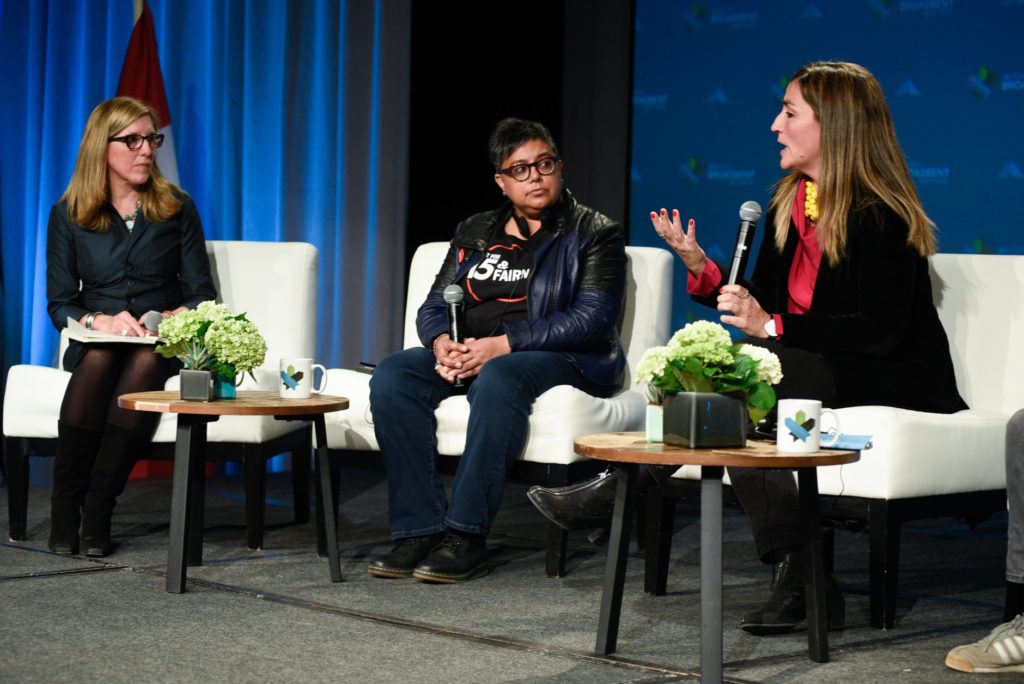
Is it possible to have a competitive economy that is also fair? This question was on my mind when I moderated a panel on economic democracy at the Progress Summit earlier this year. Economist Rocío Martínez-Sampere, sociologist Julia Posca and workers’ rights organizer Deena Ladd joined me for what turned out to be an inspiring economic myth-busting session.
Rocío called out the notion that economics is an exact science. Experts and pundits imply that economic life is governed by natural laws when, in fact, the economy is shaped by our choices and values. If we make the “rules” of our economy, they can be contested and changed by us too, she said.
Julia talked about the growth of the wage gap between the highest and lowest earners in corporations over the last few decades. She argued that the reason business leaders give for this immense gap – that firms have to offer astronomical compensation packages to compete for top talent – is not supported by data. Research shows little relationship between CEO pay and business performance. If it’s not a fact that corporations will nosedive if executives earn less, maybe there’s room for discussion about the income scale.
Deena recounted how, as the Workers Action Centre fought for a $15 minimum wage and basic protections for low-wage workers in Ontario, members faced criticism from business lobbyists who claimed that small businesses would suffer and shutter their doors if wages rose. In response they formed a coalition of small business people, called the Better Way Alliance, who want good relationships, viable businesses, and healthy communities more than they want to maximize their immediate self-interest by paying workers less.
In different ways, all three reminded us that changing the rules of the economy is not only about changing laws. It’s also about raising our expectations and unpacking harmful dogmas.
I asked the audience in the room to tweet the economic myths they’d like to see busted using the hashtag #rewritingtherules. Several people called out the myth that corporations create jobs and wealth – that prosperity comes from some distant source and not from the people who do the bulk of the work. Others questioned low corporate taxes and the claim that they lead to meaningful job creation. They pointed out that private firms receive plenty of support from governments, both direct and indirect, but a stubborn myth persists that businesses are the makers in the economy and everyone else is a taker who survives on the makers’ taxes.
Asked what they most want from the economy, few people stop at “competitiveness” or “efficiency” or even “jobs.” Like Better Way Alliance members, most people want economies that help families instead of harming them, support communities instead of stressing them to the breaking point. They want the economic rules and rewards to be fair.
Choosing a different narrative about the economy – who makes and who takes – is the first step. If you’d like to meet people who have made this choice, check out the Power Lab. It’s a new initiative that’s all about creating fair economies through local organizing. Keep your eyes on our lab partners to see how the old story is changing in communities across Ontario.
